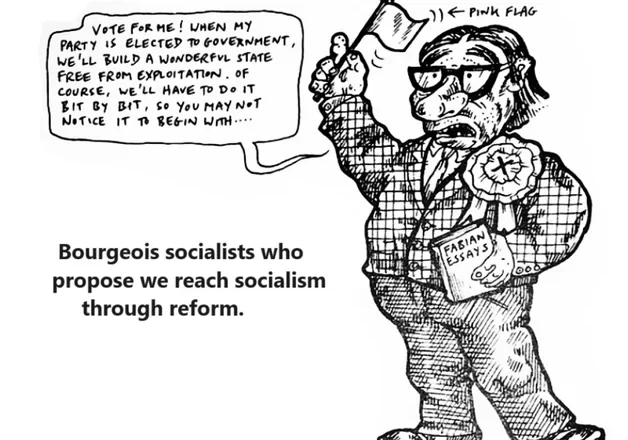Should we demand reforms? Do they undermine our rulers and increase working class self-confidence or do they maintain them in power?
Anarchist Communist Group Online Meeting. 7pm, Wednesday June 18th June, 18th.
“In the course of human history it is generally the case that the malcontents, the oppressed, and the rebels, before being able to conceive and desire a radical change in the political and social institutions, restrict their demands to partial changes, to concessions by the rulers, and to improvements. Hopes of obtaining reforms as well as in their efficacy, precede the conviction that in order to destroy the power of a government or of a class, it is necessary to deny the reasons for that power, and therefore to make a revolution.
In the order of things, reforms are then introduced or they are not, and once introduced either consolidate the existing regime or undermine it; assist the advent of revolution or hamper it and benefit or harm progress in general, depending on their specific characteristic, the spirit in which they have been granted, and above all, the spirit in which they are asked for, claimed or seized by the people.
Governments and the privileged classes are naturally always guided by instincts of self preservation, of consolidation and the development of their powers and privileges; and when they consent to reforms it is either because they consider that they will serve their ends or because they do not feel strong enough to resist, and give in, fearing what might otherwise be a worse alternative.
The oppressed, either ask for and welcome improvements as a benefit graciously conceded, recognise the legitimacy of the power which is over them, and so do more harm than good by helping to slow down, or divert and perhaps even stop the processes of emancipation. Or instead they demand and impose improvements by their action, and welcome them as partial victories over the class enemy, using them as a spur to greater achievements, and thus they are a valid help and a preparation to the total overthrow of privilege, that is, for the revolution. A point is reached when the demands of the dominated class cannot be acceded to by the ruling class without compromising their power. Then the violent conflict inevitably occurs.
It is not true to say therefore, that revolutionaries are systematically opposed to improvements, to reforms. They oppose the reformists on the one hand because their methods are less effective for securing reforms from governments and employers, who only give in through fear, and on the other hand because very often the reforms they prefer are those which not only bring doubtful immediate benefits, but also serve to consolidate the existing regime and to give the workers a vested interest in its continued existence.”
Errico Malatesta
Get your (free) tickets from:

